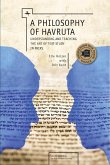A timely study by two well-known scholars offers a theoretically informed account of the political sociology of Israel. The analysis is set within its historical context as the authors trace Israel's development from Zionist settlement in the 1880s, through the establishment of the state in 1948, to the present day. Against this background the authors speculate on the relationship between identity and citizenship in Israeli society, and consider the differential rights, duties and privileges that are accorded different social strata. In this way they demonstrate that, despite ongoing tensions, the pressure of globalization and economic liberalization has gradually transformed Israel from a frontier society to one more oriented towards peace and private profit. This unexpected conclusion offers some encouragement for the future of this troubled region. However, Israel's position towards the peace process is still subject to a tug-of-war between two conceptions of citizenship: liberal citizenship on the one hand, and a combination of the remnants of republican citizenship associated with the colonial settlement with an ever more religiously defined ethno-nationalist citizenship, on the other.
Dieser Download kann aus rechtlichen Gründen nur mit Rechnungsadresse in A, B, BG, CY, CZ, D, DK, EW, E, FIN, F, GR, HR, H, IRL, I, LT, L, LR, M, NL, PL, P, R, S, SLO, SK ausgeliefert werden.









